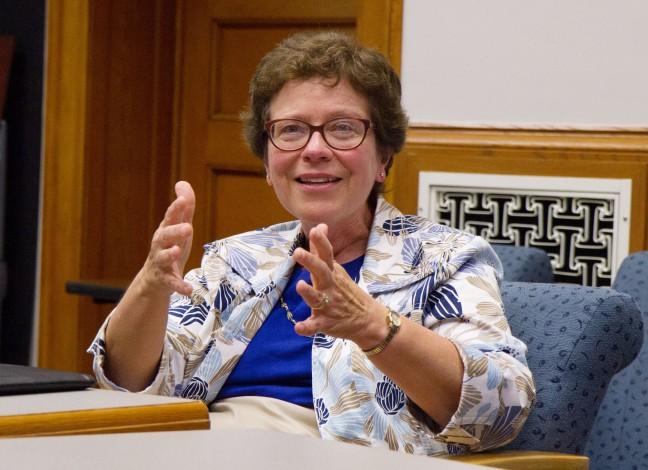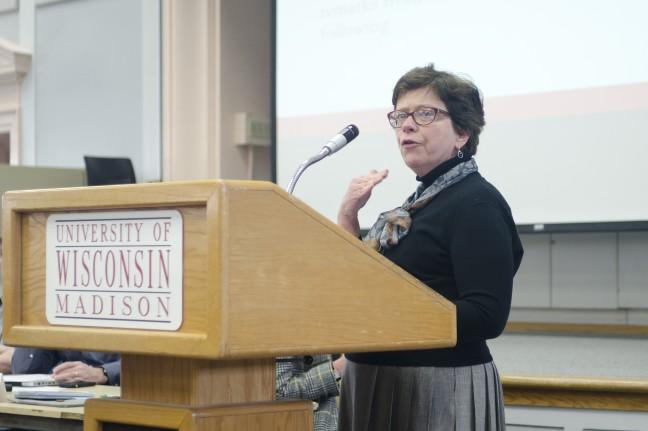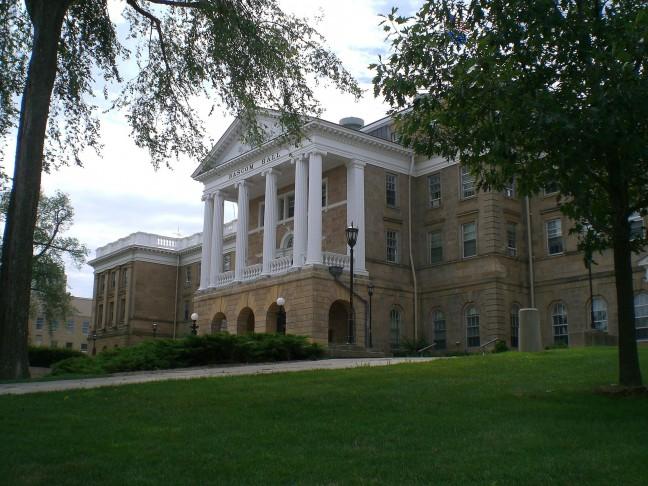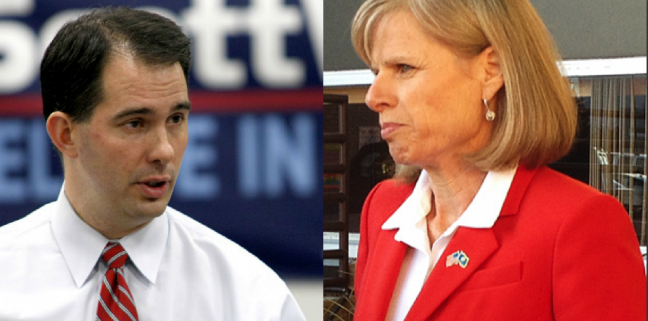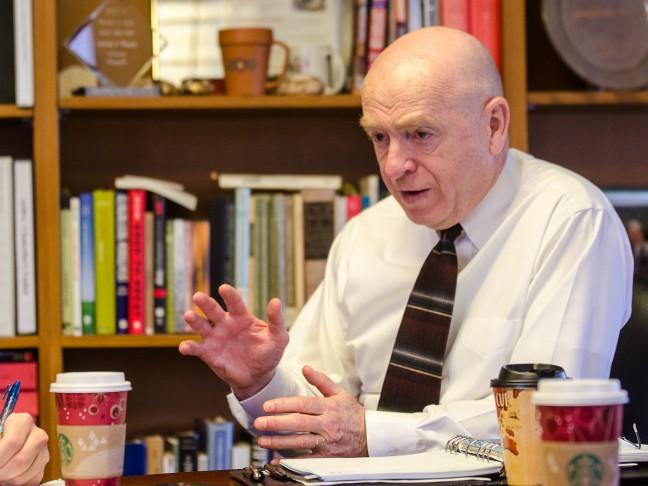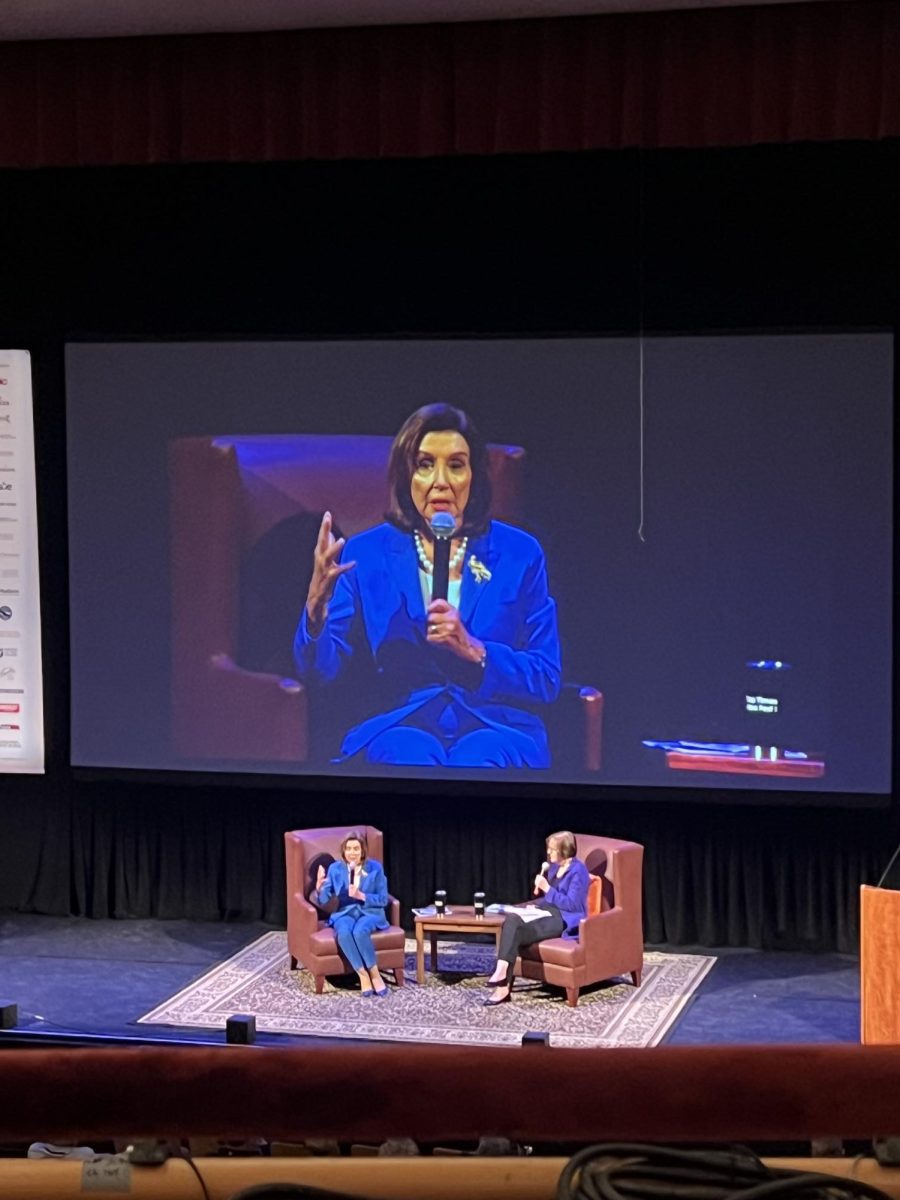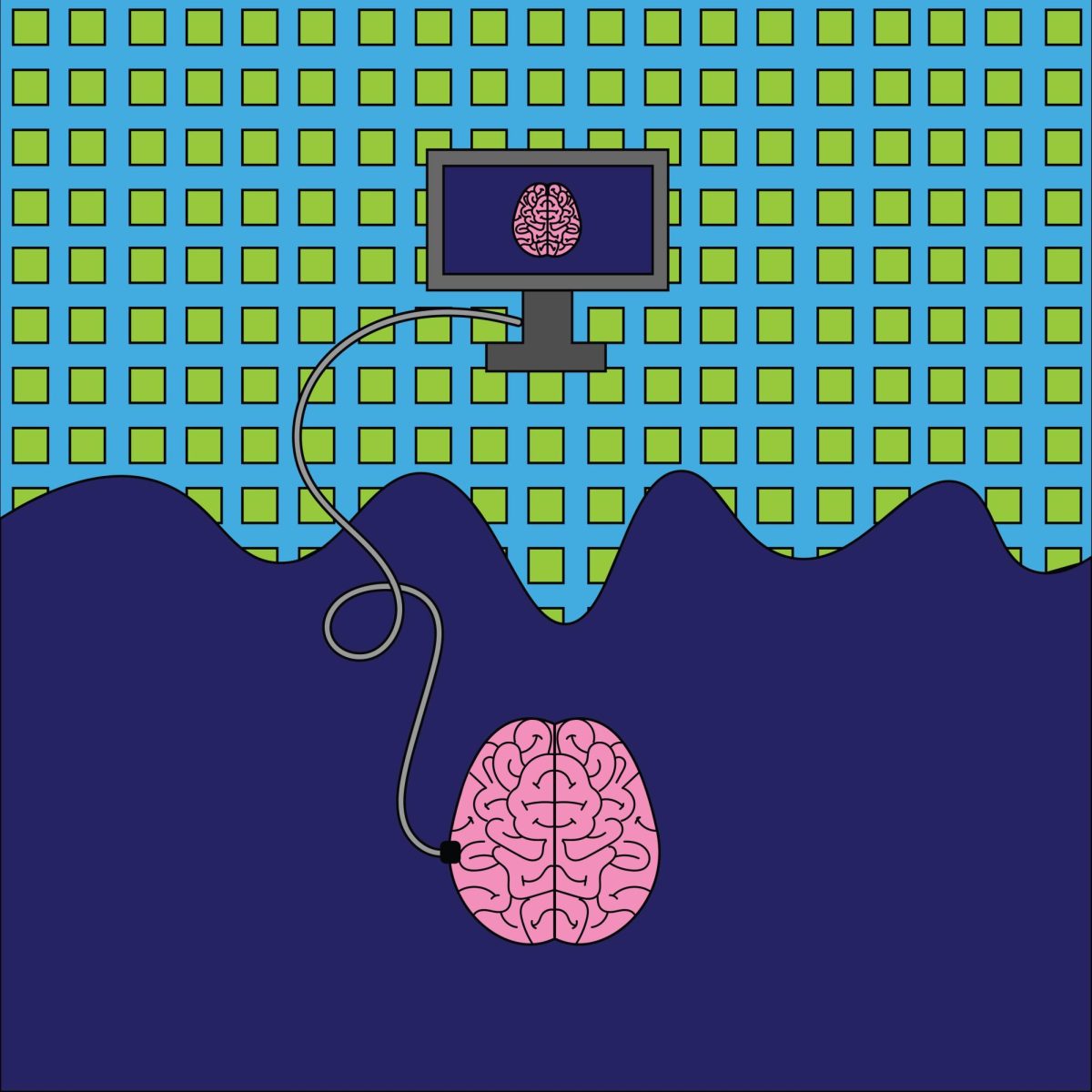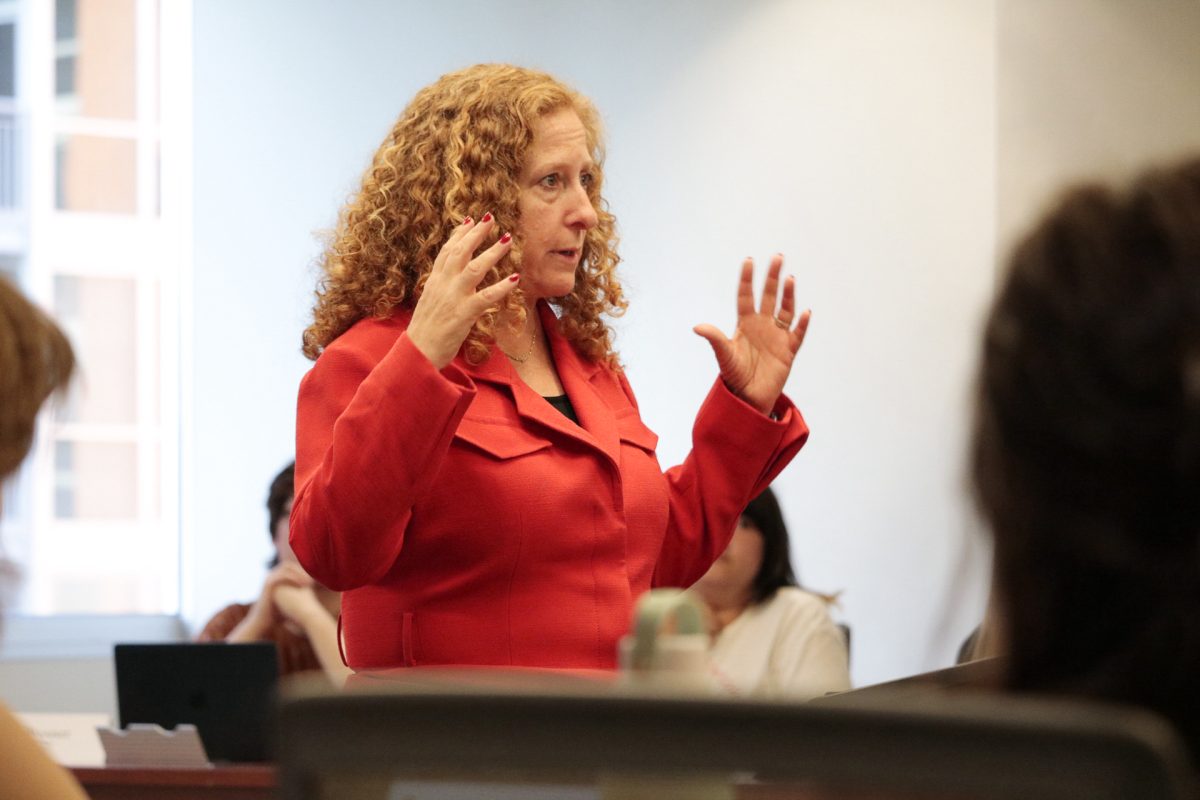Around this time last semester, the University of Wisconsin administration introduced the idea for the New Badger Partnership, an equivocal vision of the university’s future, to the campus.
Since that day, supporters have been adamant about its necessity at the university, while others have voiced concern over the lack of specifics included in the New Badger Partnership.
More answers and details will be made known early this year when Gov. Scott Walker releases the two-year state budget in February, at which point the Legislature will start offering tweeks. Until then, UW groups are working to hammer out what principles should guide the proposal.
While Chancellor Biddy Martin has made it clear she does not expect any new funds from the state in light of Wisconsin’s economic situation, the upcoming budget session will determine if the university can expect the kind of flexibility for which the UW administration has been making a case.
“The governor’s ideas [and] his budget set the parameters for the discussions of both budget and structure,” Martin said in an e-mail to The Badger Herald.
More flexibility, as it pertains to UW and the New Badger Partnership, would allow UW to set its own tuition and compensation for employees, as well as approve new hires, building projects and expansion, according to a report from Martin’s office.
Currently, UW must receive approval from the UW System and state to proceed with those actions.
According to the report, greater flexibility would allow for a symbiotic relationship between the university and the state. If allowed more room to handle its resources on its own, UW could in theory produce more graduates while maintaining high standards of educational quality.
A misconception surrounding the New Badger Partnership is that any changes in the layout of the university would mean privatization, Martin said in the e-mail.
“The other misconception is that a different status would change our system of shared governance. It would not,” Martin said.
Many people, from students to faculty to staff, are interested in the partnership’s specific details, said Vice Chancellor Darrell Bazzell. Since the governor’s response and state budget will dictate the next step of the New Badger Partnership, Bazzell said it is hard to give concrete details on the next steps.
Beginning to Lay the Groundwork
Despite the lack of specific details, the New Badger Partnership advisory group, comprised of faculty, staff, labor representatives, UW students and administration has begun meeting to chart the partnership’s proposal, if not its exact course.
During the Jan. 14 New Badger Partnership advisory group meeting, labor representatives, administration, students and faculty met to study other universities’ attempts at restructuring and lay out basic goals.
The advisory group listened to presentations on state universities in Oregon and Virginia, both of which have made cases for greater flexibility from their own state governments, but Bazzell said neither of those models would or should be the model for UW.
“Our interests are not driven by Oregon or Virginia,” Bazzell said.
However, those cases of other states breaking some of their ties highlighted a national trend, Bazzell said. Many universities are experiencing a decline in state funding in a higher education climate that has not only become more competitive, but expanded its reach globally.
UW’s clout as a research university has been publicized with the New Badger Partnership since its introduction. UW chemistry professor and University Committee member Judith Burstyn said it is to UW’s advantage to bring in more federal research dollars, but she did not know if those funds would be more stable than state funding.
Burstyn said as other universities make a shift from state money to federal research funds, the competition for UW to receive those grants would increase, and if the federal government began to have financial issues of its own, UW may not be able to depend on those federal dollars even if it remained competitive.
It would be unrealistic to expect the ability for UW to trade less flexibility for more state funds or even no cuts, Bazzell said during the meeting.
“I do not see a trade-off between flexibility and cutbacks. … I do not see a scenario to defer flexibility to avoid [cuts]. … I hope no one is na?ve to think we can talk our way out of that,” Bazzell said.
Burstyn said other members of the University Committee echoed those sentiments.
“Whether anyone’s going to listen to us is a different matter,” Burstyn said.
While tuition at UW has been increasing steadily for many years, it still remains to be seen if the New Badger Partnership will substantially increase tuition.
Tuition increases do turn away students, and a problem with the current financial aid status quo, Burstyn said, is not all grants and scholarships can be counted on through the entirety of a student’s academic career.
Burstyn said financial aid needs to commit to funding through as many years as it takes to finish the degree.
American Federation of State, County, and Municipal Employees Local 2412 President Gary Mitchell, who is a member of the advisory group, brought forth a set of principles that were drafted by his union along with other collective bargaining and labor advocacy groups.
While UW administration has not made any explicit suggestions about leaving the UW System, one of the principles Mitchell brought to the advisory group stated UW should remain in the UW System.
“If we’re going to have flexibility, let’s do it system-wide so the other guys don’t get left behind,” said AFSCME Local 171 Vice President Randy Brink.
One reason, Bazzell said, that UW is not going about flexibility uniformly with the UW System is because the chancellor does not want to wait for the rest of the system.
More Flexibility in Wisconsin
UW is not the only institution in the state asking for similar flexibility. Two members of the UW System Board of Regents, Chuck Pruitt and Jay Smith, drafted “Principles for Progress and Prosperity,” which lays out a set of goals and interests similar to the New Badger Partnership.
The UW System report draws a neat compromise between the university system and the state of Wisconsin, much like the New Badger Partnership. In return for boosting education quality, increasing Wisconsin jobs and making a college more accessible, the state would afford stable funding, more flexibility and help make college more accessible.
UW System spokesperson David Giroux said flexibility on both the Madison campus and UW System level will come from changes in current legislature and practices, and this is not the first time this request has been made.
Associated Students of Madison Chair Brandon Williams is a member of a second advisory group made up entirely of students. Both groups, Martin said, started meeting late last semester.
Williams said the most common student response he encountered was concern about the lack of information.
“[There is] nobody with a strong opinion because there is so much information left to find out,” Williams said.


